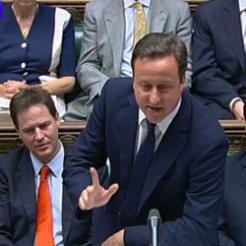Prime Minister David Cameron plans to introduce a new Co-operatives Bill, which will provide new rights for public sector workers to create mutuals.
The new Bill, which will consolidate more than a dozen pieces of legislation governing co-operatives and mutuals into a single Bill, will be put before Parliament before the next election.
David Cameron announced his plans in a wide-ranging speech held in London this week, which covered the economy, and a new form of “responsible capitalism” which would allow “everyone to share in the success of the market”.
The government has been keen to drive the mutuals agenda in public services. Last year, the Cabinet Office set up a £10m support fund for spin-out mutuals and the Department for Health also had a £10m fund to help NHS staff set up mutals and social enterprises.
Announcing the Co-operatives Bill, Cameron said: “We know that breaking monopolies, encouraging choice, opening up new forms of enterprise is not just right for business but the best way of improving public services too.
“But right now there are too many barriers in the way… so today I can announce they will all be brought together and simplified in a new Co-Operatives Bill that will be put before Parliament.”
Bankers' bonuses for charity
Sir Stephen Bubb, chief executive of Acevo, was present at the event, and challenged the Prime Minister over bankers’ bonuses during question time.
Sir Stephen urged Cameron to tell more businesses to put civil society leaders on their boards. He also said bankers should keep their bonuses, but be told to donate them to charity or invest in social enterprise.
Sir Stephen said in his blog that he did not get a specific agreement from Cameron, but that the PM did agree that corporate and social responsibility must be more root and branch, and businesses could learn from the civil society sector.
Sir Stephen has also called on chief executive of Royal Bank of Scotland Stephen Hester to donate his bonus to charity.
Sir Stephen said it would be fantastic if Hester, who spoke last year at the Acevo annual conference, would give his bonus to charity or loan it to the Social Investment Business, which could then loan it on to charity enterprises.









